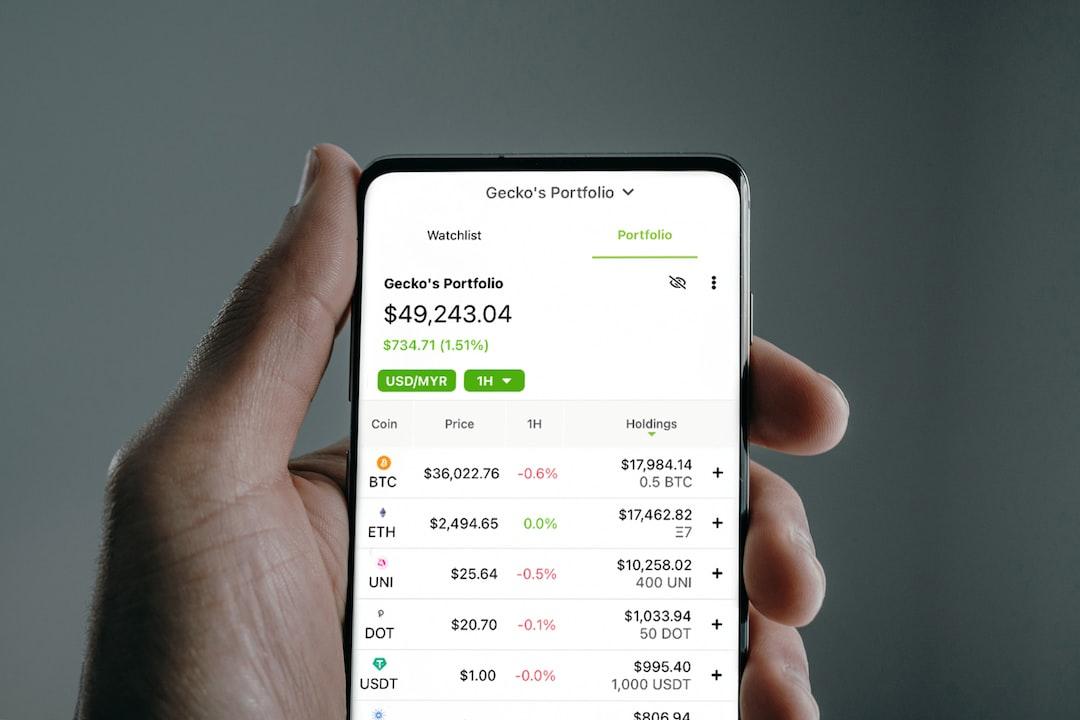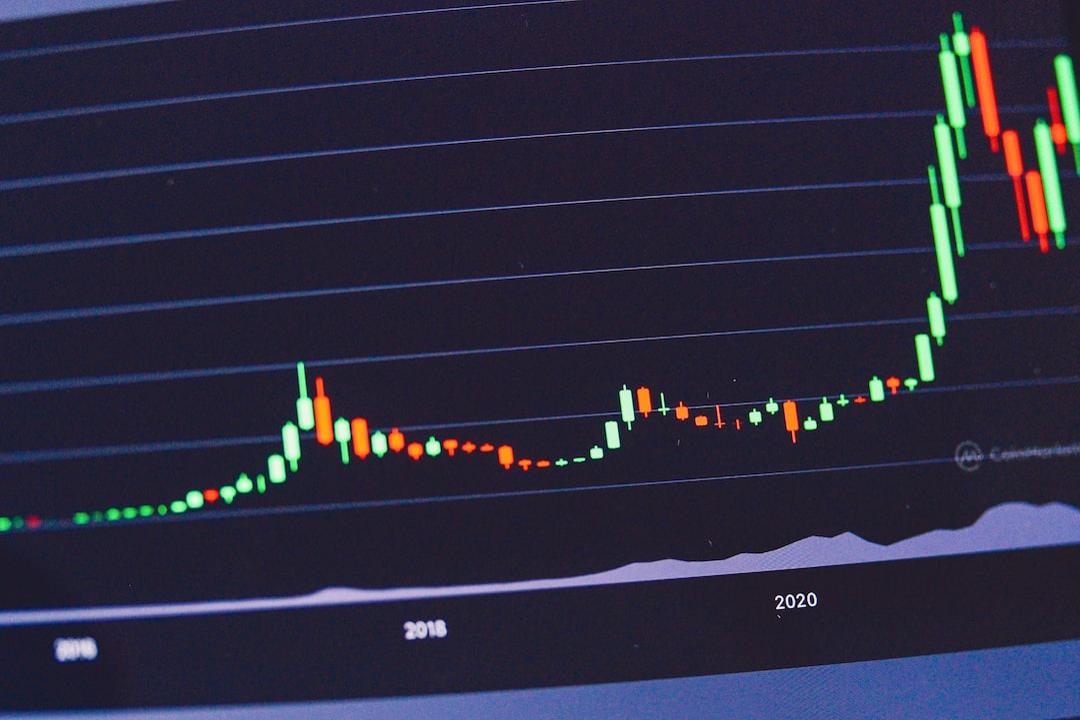CoinWorld.com reports:

Shanghai, July 5th – Bitcoin (BTC) experienced a significant plunge, briefly dropping below the $54,000 mark with a maximum decline of over 8%, marking its lowest level since February this year. Major cryptocurrencies like Ethereum (ETH) and Solana (SOL) also saw declines of around 10%, prompting widespread concern in the market.
This downturn may be influenced by the latest slowdown in U.S. non-farm payroll growth, which boosted expectations of a Fed rate cut. As of July 6th, Bitcoin has shown a slight recovery, with its latest price standing at $56,536.17, marking a 4.83% increase intraday.
“As a new type of asset, cryptocurrencies such as Bitcoin exhibit extreme price volatility and lack effective regulatory and safeguard mechanisms,” remarked Cao Zhe, Chief Investment Officer at AV Intelligence, to the Huaxia Times. Zhe advised investors to carefully assess their risk tolerance and understand the risks in the cryptocurrency market to avoid blind trend-following and excessive speculation.
A decade-old black swan event has once again roiled the market. Bitcoin’s price has plummeted over 20% in the past 30 days, with daily trading volumes dropping by 32% during the same period.
Commenting on this decline, An Guangyong, an expert from the Credit Management Committee of the All-League Mergers and Acquisitions Association, noted that Bitcoin often experiences sharp fluctuations due to its relatively small market size, limited liquidity, and lack of a stable regulatory framework. These factors make it susceptible to market sentiment, news events, and large transactions.
“Investors in crypto face significant market volatility,” An emphasized, urging them to adjust investment strategies according to their risk tolerance, diversify investments, and stay updated on global cryptocurrency regulatory policies. It is also advised to use secure wallets and trading platforms to mitigate technical and hacking risks.
The reimbursement of Mt. Gox creditors is seen as one of the main reasons for this recent major downturn. Creditors of Mt. Gox have been waiting for over a decade, during which Bitcoin’s price has soared by over 10,000%.
According to data from Arkham platform, on July 4th, Mt. Gox wallets conducted test transactions, transferring a total of $25 worth of Bitcoin through three transactions to different wallets. On July 5th, PeckShieldAlert monitoring revealed that the address receiving 47,200 BTC from Mt. Gox transferred funds to two new addresses.
The reimbursement process of Mt. Gox has just begun, with creditors’ next actions remaining uncertain. Meanwhile, recent actions by the German government have further exacerbated market panic.
In January this year, during an investigation into the streaming platform movie2k, the German government confiscated nearly 50,000 BTC worth about $2.1 billion. Starting from June 19th, the wallet holding this illicit money began selling Bitcoin, with 6,500 BTC sold on the first day. On July 4th, the wallet transferred another 1,300 BTC to exchanges like Bitstamp, Coinbase, and Kraken, and moved 1,700 BTC to anonymous wallet addresses. On the afternoon of July 5th, the wallet transferred 500 BTC worth approximately $27.07 million to new addresses.
Despite these large transfers, the German government still holds over 4,000 BTC worth approximately $2.3 billion. The impact of Germany’s sell-off has prompted TRON founder Justin Sun to offer to purchase all Bitcoin off-market to minimize market impact.
Arkham data reveals that several governments currently hold significant amounts of Bitcoin, totaling approximately $17.8 billion. Of this, the U.S. government holds the largest share, around $12 billion; the UK government holds Bitcoin valued at around $3.3 billion; and El Salvador holds Bitcoin worth $314 million.
Pressure from miners has further compounded market woes. Due to halving effects and deteriorating income conditions, many inefficient miners have been forced to exit the market, resulting in a significant decline in Bitcoin’s network hash rate. According to OKLink data, Bitcoin’s global network hash rate has dropped by 15% from its peak over the past two months, with a continuous decline observed over the past week.
Simultaneously, miners are selling off their Bitcoin holdings. IntoTheBlock data shows that since 2024 began, miners have collectively sold over 50,000 BTC, depleting their Bitcoin reserves to historically low levels. Recent data indicates that in just the past week, miners have sold Bitcoin worth a total of $150 million.
A report from CryptoQuant highlights that since halving, Bitcoin miners’ fee income has dropped to just 3.2% of total daily revenue, the lowest share in three months. With incentives dwindling, miners are progressively shutting down underperforming equipment and selling Bitcoin to hedge risks.
In addition to these factors, the listing progress of Ethereum spot ETFs in the U.S. market has also faced hurdles. While initial expectations suggested approval by July 4th, there has been no news to date.
“This significant downturn may only be the beginning, with Bitcoin potentially falling further to $50,000,” predicted analysts from 10xResearch. Data from the institution shows a decrease in Bitcoin buy flows and an acceleration in sell flows, indicating a potential downward trend in the coming months.
Josh Gilbert, market analyst at eToro, shares this view, suggesting that current bearish news outweighs bullish sentiments. He anticipates further deterioration in Bitcoin’s price trend over the next few days, with short-term prices testing $50,000 or lower, making $52,000 a critical battleground between bull and bear markets.
Andrew Kang, co-founder of Mechanism Capital, holds a more pessimistic view, suggesting Bitcoin could see an extreme pullback towards the $40,000 range.
Investors must be aware of multi-dimensional risks in the crypto market. According to a report from blockchain intelligence firm TRM released on July 5th, the amount of cryptocurrency stolen through hacks and network vulnerabilities more than doubled in the first half of this year, reaching $1.38 billion. Major attacks accounted for 70% of stolen cryptocurrencies.
The report indicates that hackers primarily steal cryptocurrencies by obtaining private keys and seed codes. The largest attack this year occurred at the Japanese exchange DMM Bitcoin, where stolen Bitcoin exceeded $300 million across more than 4,500 tokens. The reason for the attack remains undetermined.
According to the mid-year phishing report by Scam Sniffer, in the first half of 2024, 260,000 victims lost $314 million across the entire EVM chain. This amount surpasses last year’s $295 million theft within just six months.
In addition to security issues, regulatory trends remain a crucial factor influencing the crypto market. Global attention is currently focused on the U.S. election. Geoffrey Kendrick, Head of Forex and Digital Assets Research at Standard Chartered Bank, suggested that if Biden continues his U.S. presidential candidacy, the market may view this favorably for Trump’s victory. This scenario could potentially see Bitcoin prices reaching new highs in August, surpassing $100,000 by Election Day. However, if Biden withdraws from the presidential race by the end of July, Bitcoin prices could fall to $50,000. Kendrick added that if Biden’s Democratic successor appears more reliable, Bitcoin prices may remain weak.
“Investing in Bitcoin entails risks from multiple angles,” noted Yu Jianing, President of Uweb and Co-Chair of the Blockchain Committee of the China Communications Industry Association, in an interview with Huaxia Times. Market risk is a primary consideration as Bitcoin prices are highly volatile and susceptible to various factors such as changes in market sentiment, macroeconomic environments, and regulatory policies.
“Investors need to prepare for intense price fluctuations in the short term,” Jianing emphasized, highlighting the importance of regulatory risks. Globally, regulatory policies concerning digital assets are constantly evolving, and any new measures could have profound implications on the Bitcoin market. Additionally, technical risks, security risks, and fraud risks are crucial factors to consider when investing in Bitcoin. Issues such as hacking attacks, system failures, or other technical problems can lead to asset losses.
Jianing stressed that investors should thoroughly research market dynamics, allocate assets according to their risk tolerance and investment objectives, and stay updated on market and policy changes to make informed investment decisions.
Editor-in-Charge: Xu Yunxi | Chief Editor: Gong Peijia

